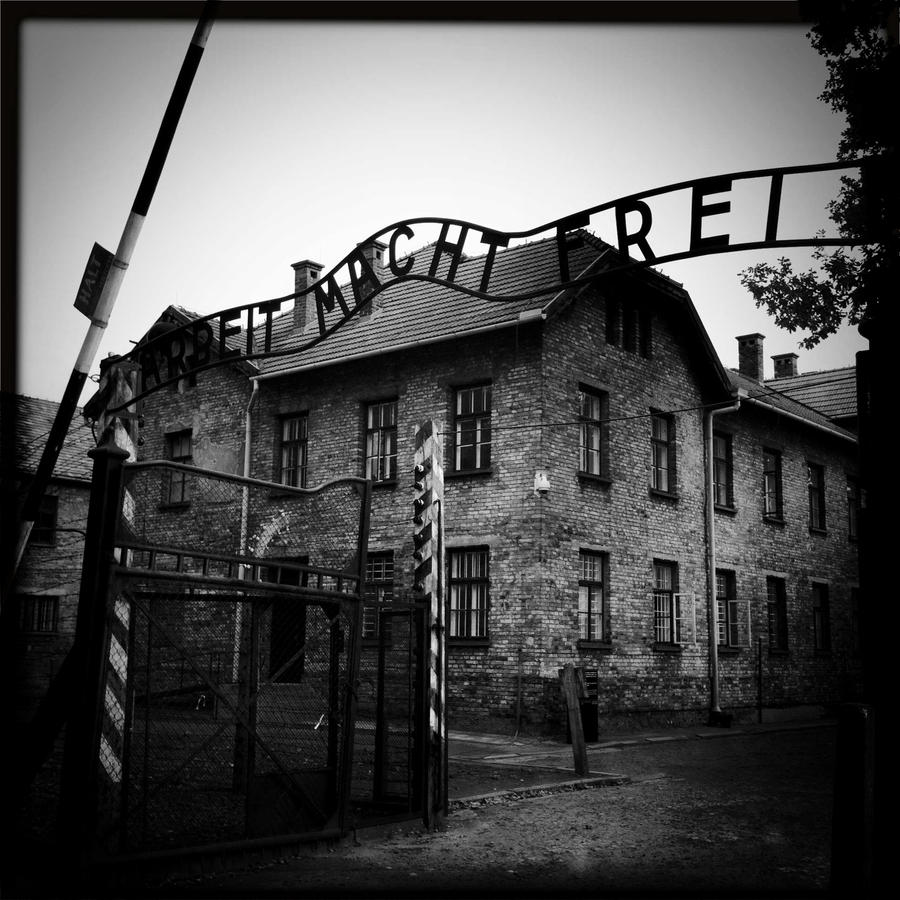 “Never shall I forget that night, the first night in camp, which has
turned my life into one long night, seven times cursed and seven times
sealed....Never shall I forget those moments which murdered my God and
my soul and turned my dreams to dust. Never shall I forget these things,
even if I am condemned to live as long as God Himself. Never.”
“Never shall I forget that night, the first night in camp, which has
turned my life into one long night, seven times cursed and seven times
sealed....Never shall I forget those moments which murdered my God and
my soul and turned my dreams to dust. Never shall I forget these things,
even if I am condemned to live as long as God Himself. Never.”
There are, perhaps, few events in history that still have the power over us the way the holocaust does. Nothing else seems so unfathomable, makes us recoil in horror, and draws pity from our hearts like the suffering of the European Jews during WWII. And yet, the story is now so familiar that we are in danger of being desensitized to it. In this slim volume, survivor Elie Wiesel recounts not only his own story, but also that of 60 million other people. Knowing that he cannot remain silent, he begs the world to never forget.
The Plot:
Romanian-born American author Elie Wiesel tells of his fate and that of his family in the period of 1941-1945. He tells of the early years when his small community felt little affect from the war raging in Europe. Of the time in the Ghetto when they thought the war would end before any real harm came to them. Of the nightmarish journey in cattle cars to impending death. And of the horrific years spent simply trying to stay alive in Auschwitz and Buchenwald.
My Review (Caution - Spoilers):
The Second World War is a period in history that has long held my fascination. I have pored over books and watched many films and documentaries. And in all that time, I don't think I have ever come across one that I have found as powerful as this. Perhaps it is because the story wasn't being told by experts, scholars, and talking heads, but rather by someone who lived and breathed the horror.
There is nothing beautiful about this book. It is stark. It is horrific. It is raw. Wiesel describes in detail all of the horrible realities of life in a German concentration camp. It was so honest that it often became difficult to read. I imagined my own family in those circumstances; watching my own father slowly die before my eyes; seeing my own little sister go to her death in a bright red coat. Each of us, no matter our circumstances, can easily imagine ourselves in the shoes of the European Jews.
Perhaps what is most disturbing, beyond the never ending slaughter, is the fact that the Nazis believed the Jews to be sub-human and so consquently stripped them of everything that made them human. Life simply became a matter of surviving the next moment. Even Elie found himself abandoning his own father in an attempt to simply keep living. I think what I found most heartbreaking was seeing Elie being stripped of the faith he had once held so dear. He was a boy who spent much of his life in study and prayer and yet in the end he would feel abandoned and punished by the God he loved. So much so that his faith became non-existent.
As a Christian, this book is challenging in that it is so difficult to see God in the midst of the horror. Like Elie, we are left to wonder where God was and how he could abandon his chosen people to such a fate. How do we talk of the love of God to someone who has been through what Elie and his family went through? In his foreword to the book, French author Francois Mauriac describes his own difficulty:
And
I, who believe that God is love, what answer could I give my young questioner,
whose dark eyes still held the reflection of that angelic sadness which had
appeared one day upon the face of the hanged child? What did I say to him? Did I speak of that other Jew, his brother,
who may have resembled him—the Crucified, whose Cross has conquered the
world? Did I affirm that the stumbling block to his faith was the cornerstone
of mine, and that the conformity between the Cross and the suffering of men was
in my eyes the key to that impenetrable mystery whereon the faith of his
childhood had perished? Zion, however, has risen up again from the crematories
and the charnel houses. The Jewish nation has been resurrected from among its
thousands of dead. It is through them that it lives again. We do not know the
worth of one single
drop of blood, one single tear. All is grace. If the Eternal is the Eternal,
the last word for each one of us belongs to Him. This is what I should have
told this Jewish child. But I could only embrace him, weeping.
Though it is by no means an easy book to read, it is one that we must. Read it because they died. Read it because they were human. Read it because the survivors cry out. Read it because so many turned a blind eye. Read it so that it may not be forgotten. Read it because you live.
















No comments:
Post a Comment